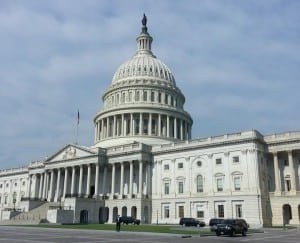
A bill that would eliminate the Chevron deference, a judiciary practice by which courts defer to the interpretation of a government agency in cases of ambiguous statutory meaning, Wednesday cleared the House Judiciary Committee.
The Chevron deference has become a cornerstone of the Environmental Protection Agency’s defense in an ongoing lawsuit against its Clean Power Plan, carbon pollution standards for existing coal-fired power plants. Opponents of the rule argue that EPA does not have the authority to regulate carbon from such facilities under Section 111(d) of the Clean Air Act because existing coal-fired power plants have already been regulated for different pollutants under Section 112. The Clean Air Act says a source cannot be regulated under both sections.
EPA has interpreted the Clean Air Act as meaning a source cannot be regulated for the same pollutant under both sections, not that the source itself cannot be regulated under both sections, and argues that because of the Chevron deference the court should side with it.
It is unclear how the bill, in the unlikely event the president signs it into law, would affect the EPA’s case. The agency declined to comment on the pending legislation.
During the lengthy debate-filled markup it seemed that the greatest disagreement between the parties was which group of unelected officials is best suited to interpret ambiguous statutes and laws – bureaucrats or judges.
Democrats argued that judges lack the expertise to make the call. “The likely outcome of enacting this unwise proposal will be more power in the hand of a single branch of government that is unelected and unaccountable to the public,” Rep. Hank Johnson (D-Ga.) said, later adding that unelected bureaucrats are “trained and steeped in the intricacies of the particular subject matter that the code or regulation or rule addresses.”
On the other side of the aisle, the impartiality of bureaucrats was called into question. “The bureaucracy … has some expertise in this area, but they’re also often having come from interest group organizations that lobby that very regulatory agency for the interpretation that they want. Now they have jobs there, and they’re definitely interpreting it the way the organization they used to work for wants,” committee Chairman Bob Goodlatte (R-Va.) said.
The bill’s author, Rep. John Ratcliffe (R-Texas), defended the judges from the Democrats’ attack, noting that they are “vetted and confirmed based on their education, training, and experience. No, they’re not elected, but they’re not simply just hired like many bureaucrats are.”